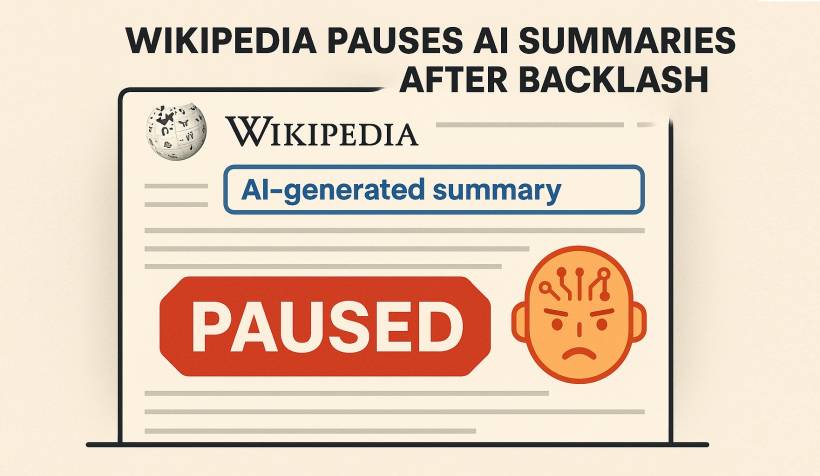In a digital world where AI is rapidly integrating into everything from emails to entertainment, even Wikipedia isn't immune. But while generative AI might be the trend du jour, not everyone's on board — especially the people who actually keep Wikipedia running.
Recently, the Wikimedia Foundation announced plans to experiment with AI-generated article summaries on the mobile version of Wikipedia. The idea? Give users a quick, simplified overview at the top of each article. Seems harmless, right?
Not so fast.
A Trial That Didn't Even Get to Start
The project was initially designed as a two-week opt-in trial, and it was quietly introduced on one of Wikipedia's community discussion pages. But instead of quiet excitement or polite curiosity, the move was met with swift and vocal rejection from the site's volunteer editor community.
Some responses were blunt — think "yuck" or "absolutely not." But others laid out more thoughtful objections, and they hit at the very core of what makes Wikipedia what it is.
Trust, Collaboration, and... Flashiness?
One of the primary concerns? Reputation.
Wikipedia has always stood out for its no-frills, facts-first style. It's built a name on being reliable, collaborative, and neutral. Introducing slick, AI-generated summaries — especially ones created by a system not known for perfect accuracy or balanced perspectives — could potentially undercut that.
Editors warned that these summaries might give readers a false sense of simplicity or certainty, when Wikipedia is meant to be a gateway to deep, verifiable information. Slapping an AI summary on top, some argued, risks diluting the encyclopedia's purpose.
Worse still, many felt that using automated content goes against Wikipedia's collaborative DNA. After all, the whole point is that real people — thousands of them around the world — build and refine articles together, with transparency and accountability. A single AI model churning out summaries from behind a digital curtain? That just doesn't sit well.
Wikimedia Responds: "We Could Have Handled It Better"
To their credit, the Wikimedia Foundation quickly acknowledged the backlash. Marshall Miller, a senior director at the Foundation, admitted that they "could have done a better job" introducing the concept to the community.
He also confirmed that the AI summaries trial has been paused indefinitely and that any future efforts would involve editors directly from the beginning.
But don't count AI out of Wikipedia just yet.
AI on Wikipedia: Not Dead, Just Sleeping
Although the current trial has been shelved, the Wikimedia Foundation is still clearly interested in exploring AI-driven features — particularly as tools to help with accessibility, simplification, and possibly even content maintenance.
The takeaway? This isn't a complete shutdown of the idea. It's a recalibration.
Wikipedia's editor community has drawn a firm line: if AI is going to play a role in the platform, it needs to enhance the collaborative model, not undermine it. And it must uphold the values of accuracy, neutrality, and openness that the site was founded on.
The Bottom Line
This episode serves as a powerful reminder: technology is only as good as its community's trust.
Wikipedia isn't just a website. It's a human-powered knowledge machine. And while AI might be able to assist, summarize, or even improve certain processes, it can't (and shouldn't) replace the core principle that built the platform in the first place — collaborative human effort.
For now, the bots are sitting this one out.





Comments